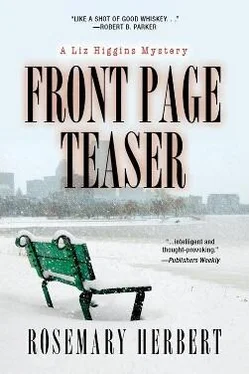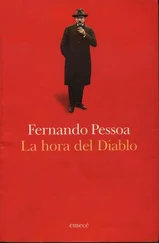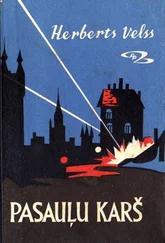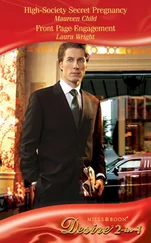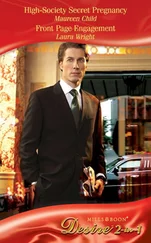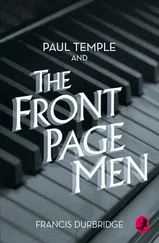What about telling it like it is? Who do you tell?”
“Depends on what you’re tellin’. If your daddy mess wit’ you, you don’t go runnin’ to him, ’cept to tell him to go fuck his self. ”
“That’s right!”
LaShandra dropped her eyes and softened her tone. “I might tell Father James somethin’ like that. Get him to restrict the old man’s visits, you know what I mean?”
“That sounds like a good idea. It also sounds like it would take courage,” Liz said.
LaShandra paused. “It takes that. Yeah, you need courage. But you also need re solve . That’s it. Some things you can’t fix with one of your New Year’s resolutions. You got to have re solve .”
Thanking her lucky stars that the photographer chose LaShandra as one of his subjects, Liz spoke with a few of the other girls, two of whom she recognized as contributors to the making of her afghan. On impulse, she took from her wallet a photo of Prudence preening herself on the afghan and gave it to them. Rough and tough as they were on the surface, they all dissolved into oohs and ahs as they passed the photo to one another. Only one of them seemed unmoved by the cat photo: a scrawny teen called Eleanor, a name that seemed far too big and old-fashioned for her. Liz made a mental note to seek out the reserved girl for a future report.
Saying her good-byes to the young women and to Father James, Liz knew time was tight, lines were up, and Dermott McCann would be on the warpath when she arrived late. Thanks to the cell phone, she was able to call and say she was on her way in. But that didn’t do a thing to take the sting out of city editor’s wrath.
“Where the hell’ve you been, Higgins?” the city editor demanded as soon as Liz approached his desk. “How are we supposed to get a paper out when we don’t know what you’ve dug up for us till after lines are up? Was it so difficult to come up with a freakin’ New Year’s resolution piece with a whole day to spare?”
“I’ve got that and more, Dermott. I managed to get inside the Johansson house with the missing woman’s mother. The police have stripped . . .”
“Yeah, yeah, yeah. What else is new?” He pointed to the television screen mounted above his head, over the city desk. Its volume was low, but the picture was clear. Standing in front of the Johansson house was Channel Six newsman George Sanders, expounding on the wallpaper stripping.
“I hope, at least, you got a good look at the clue on the wall.”
“What clue?”
“I wish to hell I knew. Police aren’t saying. Hell, Higgins, you better wish you knew. You mean to tell me you were inside the house, inside the bedroom , and you didn’t see it?”
“I saw a completely stripped room. No, I take that back. Three walls were stripped completely. The fourth was only partially stripped.”
“Christ almighty, Higgins! Are you telling me you didn’t take a good look at that number-four wall? And why the hell didn’t you call for a photographer? Say something! Don’t just give me those puppy-dog eyes! Get the hell to your desk and file that New Year’s resolution story. I hope at least you’re good for eight inches on that!”
As she wrote the story, Liz felt utterly deflated. It is a reality of the media wars that television journalists have a huge advantage over daily newspaper reporters. TV types could break news the same day as it happened, instead of delivering it the next morning. But Liz had lost more than the scoop here. If she had been on the ball, she literally would have gotten the inside story and had more to report than the television people did, even if it appeared in the next day’s paper.
Instead, she’d let her emotions get in the way of doing her job. No matter how much her heart went out to Olga Swenson, she did the woman no service by holding her hands instead of getting to the bottom of the mystery. Dick Manning had a point when he warned her it’s not a good idea to get emotionally involved with the people you meet in the course of reporting.
And would she heed this advice tonight, Liz wondered, when dining someplace “rather special” with Cormac Kinnaird? Much would depend on the unpredictable mood of the good doctor.
Although the clock was ticking towards her rendezvous with Cormac, she took the time to search the telephone database for Harmony Haven, Clifford Buxton, and Ali Abdulhazar. Finding the music teacher was as simple as whistling a happy tune. A Buxton, Clifford, was listed as residing on Liszt Lane in Bourne, Massachusetts. The street was probably one of several that composed a housing development known as Harmony Haven. But finding Ali was not so easy. Liz learned quickly that Arabic names are spelled with numerous variations, some phonetic and others reflecting the linguistic influences of those who militarily occupied, governed, or culturally influenced parts of the Arab world. Thus, Abdul might also be spelled in the French manner, Abdoul. And then there was the punctuation problem, which presented more variations, including Ab’dul and Abd’ul. Combine this with the rest of Ali’s last name and you had to search through variations such as Ab’dulhazar, Ab’dul-hazar, Abdoulhazar, Abdoul-hazar, and more. Add to this the fact that Ali is an extremely common Arab name, and Liz came up with hundreds of possibilities. Narrowing the search by age still left her with eighty-six possibilities in eastern Massachusetts alone, and Liz did not know if it was reasonable to assume Ali had remained in the area.
If she were going to make her date with Cormac, she would have to pursue this further tomorrow, so she gathered her things and prepared to leave the newsroom. Back at her desk, she noticed the light blinking on her phone, indicating a call had come in. Picking it up, she heard a recorded message from the Cape Cod Mayhew. “Hey, it’s Doug Mayhew again. You planning to cover my band’s gig or not?” the voice demanded. Then he changed his tone. “I sure hope so,” he said.
Ah, the power of the press to raise—and shatter—hopes! Thinking of her promise to Veronica that she would find the child’s mother, Liz returned to the database in the Banner ’s library and expanded her search to business listings starting with the words “Ali,” “Ali’s,” “Ali Abdulhazar,” and “Abdulhazar’s.” This gave her hundreds more listings, but one was more promising than the rest. The owner of Ali’s Music Shack in Randolph, Massachusetts, might be the same Ali who appeared on the list she’d narrowed to Abdulhazars of the correct age group, with a home telephone number listed in Randolph.
Watching the clock, Liz gave Dr. Mayhew a quick call and learned he had no recollection of where Ali’s family had resided. He told her Randolph did not ring a bell but it was not impossible that Ali grew up there. He promised to see if he could find Ali’s address record, but given that it was amongst the disorganized stacks of papers in his living room, that might take some time.
A call to Ali’s Music Shack produced nothing but a recorded message indicating the store was closed until tomorrow. It did not invite a message. There was a message machine on the home number, though. The trouble was, the message was spoken in Arabic. Liz decided it would be better to keep trying the number until someone answered directly than to leave a message on that line. After all this she decided she simply did not have time to call the Buxton number.
Back at Gravesend Street, Liz struggled to shake the feeling of failure and frustration that had settled over her, and found herself looking at her wardrobe with an air of uncertainty, too. A reporter’s business dress was, on the whole, far more casual than corporate style. There was rarely a call for office wear that could also serve as evening attire in a pinch. A skirt and silk blouse were about as dressy as Liz got in the course of her job. She did possess one business suit, but it screamed “office,” not “dinner date.” That left her with the choice between a black cocktail dress with spaghetti straps, a teal-green wool sheath, and a longer black velvet number with a rather deep V neck. Rejecting the cocktail dress as too skimpy for the season and the black velvet as too daring for the weeknight occasion, she selected the sheath. The color was not currently in fashion, but it did set off her auburn hair to good advantage. And the cut of the dress flattered her figure. Considering she did not possess a long dress coat, the street-length dress would also look better than the others with the lined raincoat she planned to wear over it. Fortunately, there was no need to wear boots—the recent rain had washed away most of the snow in the city—since none of hers would look right with this outfit. Sheer stockings and a pair of heels would look fine with both raincoat and dress.
Читать дальше
